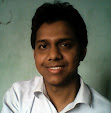Protests as China and Taiwan leaders prepare for historic talks
- on 5:49 PM
- No comments
Chinese President Xi Jinping and Taiwan's President Ma Ying-jeou are set to hold historic talks in Singapore.
It is the first time since the Chinese Civil War ended in 1949 that the leaders from both sides have met.
China views Taiwan as a breakaway province which will one day be reunited with the mainland, by force if needed.
There were protests in Taipei and one group tried to enter Taiwan's parliament building. AFP said there were arrests at the city's airport.
The arrests came as Mr Ma left for Singapore on Saturday morning. Protesters tried to set fire of images of him and Mr Xi.
"As a president who doesn't represent public opinion, Ma doesn't have the right to meet with the leader across the strait," one man, Chen, said.
A small group supporting Mr Ma also turned up at Taipei's Songshan airport.
Relations have improved under Mr Ma since he took office in 2008, with better economic ties, improving tourism links, and a trade pact signed.
The two sides split in 1949 when the Kuomintang lost to the Chinese Communist Party in the civil war and set up a new government in Taiwan.
The meeting is taking place on the sidelines of a state visit by Mr Xi to Singapore.
In a sign of how politically sensitive it is, the leaders will address each other as Mr Xi and Mr Ma, rather than president, one Chinese government official has said.
No major agreements or deals are expected to be reached, but Mr Ma has said talks would be aimed at promoting peace and finding ways to reduce hostilities, such as removing Chinese missiles targeted at Taiwan.
"We hope that the leaders of the countries will move forward and take the first step in the normalisation of ties," he said.
He said another key goal was to institutionalise meetings between the two sides, and persuade China to allow greater recognition of Taiwan in the international community.
He added, however, that the issue of the South China Sea disputes, which has dominated concerns in the region, would not be brought up.
BBC



















Post a Comment